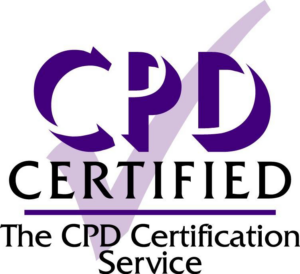ABOUT
Introduction
In today’s technology-driven world, the development of STEM (Science, Technology, Engineering, and Maths) problem-solving abilities is aligned with economic prosperity. Identifying the best instructional model for STEM is a key issue across the global educational landscape.
Our “Metacognition is STEM” course is an interdisciplinary curriculum concept as against individual subjects taught in silos in school timetables.
Our course is packed with 30 videos, 19 research papers, model lesson plans, metacognitive inventory, and templates that enable teachers to implement metacognition in their teaching practice.
We also have hundreds of STEM lessons that are anointed with metacognitive teaching strategies. We urge the teachers to think and develop their own STEM lessons.
Meet
Our Course Creators

Professor Bill Lucas
Bill’s research focuses on understanding more about the dispositions of successful learners, on how to cultivate creativity in schools and on supporting schools to better support would-be young engineers. His model of engineering habits of mind, developed with colleagues at the University of Winchester, was selected by the UK’s Institution of Mechanical Engineers as one of the big ideas of the decade. When Bill was CEO of the Campaign for Learning he led pioneering early research into metacognition – learning to learn – in schools.
Bill is a co-chair of the strategic advisory board of PISA 2021, chair of Eton’s Centre for Research and Innovation in Learning and an adviser to the State of Victoria’s Curriculum and Assessment Authority in Australia.

Dr Lynne Bianchi
Dr Lynne has over 20 years of experience in curriculum development, innovation and research in primary science and engineering education. She is a senior lecturer in the School of Engineering and Director of Science & Engineering Education Research and Innovation Hub, which she founded in 2014 at The University of Manchester.
Lynne is the author of academic papers, professional books including Beyond the Classroom Boundaries, curriculum sources such as Smart Science and Smart Pickings, which is a children’s book to inspire scientific questions and investigation. Her work has been recognised through national awards for Great Science Share for Schools and Greater Manchester Engineering Challenge campaigns. Her interests are science, engineering, school STEM activities, wonder-filled science education and application of engineering principles in primary schools.
Straight Talk
Prof Bill Lucas on India’s New Education Policy
The course at Ciribloom has rekindled my quest for experience and research-based learning. The content has great depth and everything that is discussed is supported by relevant research. The coursework is designed to urge the learner to think about good practices and reflect on one’s own experience. It is like teaching how to fish, rather than putting a meal on the table. I personally like the prompt questions as they are reflective and it encourages me to bring together my experiences from the classroom. This is definitely how I would expect PG learning to be. I also have the flexibility to read the contents over again and also play the audio. Besides, I can take a break if I have a busy week and resume when I can. This gives me control and confidence to pace my learning.
Important Information
Course Details, Eligibility and Duration
What is unique about this course?
- The only course validated by a UK awarding body that focuses on the practical implementation of metacognition in STEM curriculum. While theories in metacognition abound, they do not provide a course of action for the teachers to implement in a particular subject. Each subject requires developing different habits of mind which further requires the use of different pedagogies and initiatives.
- This course takes an interdisciplinary view of each of the science subjects like Physics, Chemistry, Maths, Design Technology, Biology, and Engineering. The principles in each of these subjects are actually used in the real world as an Interdisciplinary approach in creating solutions to problems. This course helps teachers and students to visualise the classroom teaching in a particular subject to the real-world applications.
- This course provides a structured pathway of planning, organising, implementing, and controlling metacognitive teaching in STEM subjects.
- This course provides a complete management toolbox for implementing metacognitive teaching and includes hundreds of STEM lesson plans suitable for different years.
End result:
Outstanding STEM education, which develops creativity and critical thinking abilities in teachers and pupils making them lifelong learners.
What are the learning outcomes and assignments?
There are three modules with four learning outcomes each as detailed below. There is a written assignment at the end of each module which you will need to write and submit. You will be assessed against these and individual feedback will be provided.
There are marks that will be allocated to each learning outcome and for you to pass this course you will need a minimum of 50%.
Information on course modules
- Module 1
- Evaluate some definitions of metacognition and study the evolution of metacognition
- Understand some of the terms associated with metacognition
- Introduce ten metacognition skills
- Analyse the opportunities in metacognition related to STEM
- Critically analyse the challenges in implementing metacognition in STEM subjects
- Understand six Habits of Mind (HoMs)
- Study the choice of the metacognitive skills to develop each of the Habits of Mind.
- Module 2
- Undertake an in-depth analysis of the five signature pedagogies
- Provide an understanding of the teaching methods related to these signature pedagogies
- Analyse the rationale for the selection of pedagogies for STEM activities
- Provide an understanding of the similarities and differences in the enquiry process in STEM
- Enable understanding of how the enquiry process in STEM contribute to developing metacognition
- Provide knowledge of which HoMs are developed in each of the enquiry processes in STEM
- Provide knowledge of the key metacognitive skills and the metacognitive tools
- Guide you to evaluate the metacognitive progression made by your pupils in their learning journey
- Module 3
- Understand the importance of reflective practice in improving the metacognitive skills of your pupils
- Using the topics learnt so far via the STEM HoMs, metacognition skills, and signature pedagogies create metacognitive lesson plans related to your own classroom context
- Evaluate how this course has helped you embed metacognition in future STEM teaching practice
What is the course duration?
The course will need 50 hours of study time and 100 hours of assignment preparation and writing time and can be completed within 6 months of registration. Since the course is online, candidates can complete the course at their convenient time and schedule.
What is this course about?
This is a thorough Continuing Professional Development (CPD) course where it is expected that the teacher spends 50 hours of his/her time watching the videos after carefully reading all the background papers and supporting documentation that is provided to him/her through our course.
This course is equivalent to Higher National Diploma Level 5 qualification and is equivalent in academia to a foundation degree or the first two years of a bachelor’s degree. To get more insight into where level 5 sits it will be useful to know what levels 6, 7, and 8 signify.
- Level 6 is equivalent to BA, BSc;
- Level 7 at the level of MA, MSc, PGCE and
- at level 8 are Doctorate courses.
Thus it is very important to note the depth of this CPD course that offers teachers to achieve level 5 equivalent qualification.
The course is designed to ensure that the teachers get all the basics of what the ten metacognition skills are, what the six STEM habits of mind are and how effectively they can be taught using the suggested five signature pedagogies. Having done these then there are suggested ways to track the metacognitive progress of their pupils.
There is good material provided regarding inquiry processes that are vital in any learning process.
There are three modules and each module has got four learning outcomes and thus this course has 12 learning outcomes. Each learning outcome has its own marked/assessed assignment that the teacher will have to complete.
Each assignment checks how well the teacher has understood the concepts that are taught in that particular learning outcome – this is done through essays that demand comparing and contrasting any two concepts, evaluating and analysing particular aspect, finding out how well they can implement some of the STEM activities in their classrooms and provide detailed analysis of that activity i.e. how well their pupils understood the concepts and how well they can effectively use them going forward.
It is a hands-on course that demands implementing what is being taught. Thus, it is not a theory-based course where one just reads the papers, watches the videos, and submits the assignments. It is a hands-on course where the teacher is expected to implement various strategies taught in the course and report back on the effectiveness of its implementation through the assignments.
Each assignment is in the form of an essay ranging from 500 words to 2500 words to thoroughly check whether the course student has understood the concepts that are being taught through this course.
Our assessors will assess each and every assignment submitted by the teacher and will provide personalised feedback on each assignment.
It is thus a comprehensive CPD course for a teacher who is serious about developing her/his metacognitive skills and wants to make a difference in the life of their pupils. Brighter, sharper, and enriched pupils mean a better overall outcome for them and an outstanding achievement/rating for the school.
What will you get at the end of the course?
- Teachers are assessed at the end of each learning outcome which will have passing marks. The teacher that secures 50% or more in the overall course will pass the course.
- Those who cannot secure that pass percentage will be offered one free re-sit i.e. s/he will be able to re-do the assignments again and re-submit them.
- However, if s/he still fails to clear then s/he will get another chance by paying the prevailing rate of the course at that time.
- Once passed the student will get a certificate that will be issued by the parent company of the course provider and that is ASTML (Academy of Science Technology and Management Limited) for CiriBloom and for successfully passing the course in Metacognition in STEM Teaching that is endorsed by the top quality assurance company in the UK – Insititute of CPD.
- Your re-sit attempts will not be reflected on your certificate.
- Once passed, the teacher will join our global network of metacognitive course teacher alumni where then can continue to share and partake in the new developments that are happening on the education front.
As our course alumni they will have access to our webinars and interactions with course developers and other eminent educationists that CiriBloom will continue to host on its platforms.
What is the eligibility criteria?
If you are planning to take this course then you should have:
- Graduation in any discipline OR
- Diploma in Education OR
- Higher Secondary Diploma (12th or A-Levels) with a minimum of two years of teaching experience.
This course is for practicing teachers who have access to classrooms to determine the impact of the metacognitive pedagogies that they will learn through this course.
The STEM course to be specific is designed around STEM activities that are specific to the primary school pupils and for the secondary school pupils. Thus the learning outcomes of this course will assess/gauge how well the teacher has understood the concepts and how well s/he can implement them in his/her classrooms.
It is a hands-on course and not a theory-based course and that is why it is most effective for teachers who are teaching STEM-related subjects to their pupils. The metacognitive concepts in this course are explained from the perspective of STEM and are relevant to the teachers teaching the pupils at the primary and secondary school level.
How do I access the course and start using it once enrolled?
- You can pay for this course through an internationally activated credit or debit card using our registration link. You can also pay using your PayPal account.
- Once you have paid you will be a registered student of our STEM course and will have access to our training material.
- The course is planned in a systematic way i.e. upon registration you will be explained what this course is about, how it is designed, its layout, how to access it, how to submit the assignments etc.
- You will need access to the Internet to read the background papers in this course and watch the videos that will be available to you through this course.
- You can take this course on your phone or tablet as our course is fully responsive. It will work regardless of whether you are on a computer or a mobile device.
- You will need to submit your assignments in a pdf format – full detailed instructions about it are provided at appropriate places in the course.

